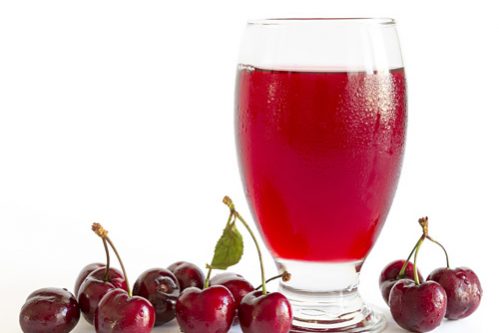Although fast carbohydrates can cause drowsiness (which accelerates sleep), in the long term, adequate sleep requires eating foods with a low glycemic index. Moreover, the proportion of monounsaturated fats in the diet affects sleep quality.
Scientists have observed a direct correlation between a good nutrition and the ability to sleep deeply. The poorer the diet, the worse the quality of sleep and rest.
The study
A study of 93,676 women aged 50 to 79 has shown that eating foods with a low glycemic index has a positive effect on the quality of sleep. (1)
In particular, the consumption of high fiber foods in the daily diet reduced the risk of sleep disorders such as insomnia by 13-14%. While refined carbohydrates like sugar can cause alcohol-like drowsiness immediately after eating, in the long term they increase the time it takes to fall asleep by up to 16%.
The quantity and quality of carbohydrates affect sleep
A limitation of previous research on the effects of food on sleep quality was not conducting the studies over a significant period of time. For example, previous studies suggested that a small serving of high-GI carbohydrates was associated with falling asleep faster.
However, observation for several months (and even years) significantly changes the situation. Behavior changes from the time of the last meal and 1 to 4 hours before bedtime as meals are repeated.
Among the nutritional factors that affect sleep quality, not only the glycemic index of foods is highlighted by studies, but also their glycemic load (in other words, the quality and quantity of carbohydrates consumed), as well as the balance of fats in the diet. Research has also helped identify that a lack of nutrients and an excess of processed foods is not good for one’s sleep.
What do you need to eat at night to sleep better?
As a general rule, the Mediterranean diet and the Nordic diet are examples of eating regimes that promote sleep and help you sleep better.
Statistical studies show that people who regularly adhere to the Mediterranean diet are less likely to suffer from insomnia. (1)
These diets are based on the consumption of a large number of whole foods, assorted vegetables, unsweetened fruits, whole grains, seeds and nuts, with an abundance of shellfish, fish, chicken, natural yogurts and vegetable oils.
Here are some nighttime diet tips to help you sleep better:
- Avoid saturated fat and eat more fiber
Another study, published in 2020, looked at the association between sleep quality and dietary supplementation. During four days, the study individuals consumed foods specially prepared for them (with a certain composition and caloric content) and on the fifth day they ate whatever they wanted.
It turned out that the abundance of saturated fat in the context of a lack of foods with fiber reduces the duration of the deep sleep phase. It is during this time when the body restores its reserves.
- Eat more protein
The lack of protein in one’s diet alters processes in the body that are related to important functions such as sleeping and eating. Eating less protein than your body needs can affect melatonin production as well as increase the urge to eat.
- Drink cherry and kiwi juice
A study in Australia found that eating two kiwis an hour before going to bed for a month has a positive effect on the ability to fall asleep, as well as on the depth and duration of sleep. However, this study did not include a control group, meaning the placebo effect could have had a role. (2)
Scientists have also found a correlation between drinking cherry juice and improving sleep quality in people with insomnia. This is apparently due to the tryptophan content in cherries. (3)
Lack of sleep increases food cravings
Reducing nighttime sleep to 4-5 hours is associated with an increase in calories consumed per day, as well as a predilection for junk food.
In the studies mentioned, when individuals got only 2 hours of sleep per day, they felt hungrier, which made them search for unhealthy snacks like sweets.
This is explained by an increase in the production of ghrelin (a hormone that controls hunger), and a decrease in the hormone GLP-1 (which controls the feeling of satiety). In simple terms, appetite increases, while satiety decreases.
Link: https://nutricion360.es/alimentos/carbohidratos/efectos-de-la-comida-en-el-sueno
Date: February 16th, 2021
By: Gonzalo Paredes
REFERENCES
- High glycemic index and glycemic load diets as risk factors for insomnia, https://academic.oup.com/ajcn/article/111/2/429/5673520?login=true
- Measures of Poor Sleep Quality Are Associated With Higher Energy Intake and Poor Diet Quality, https://www.ahajournals.org/doi/10.1161/JAHA.119.014587
- How Foods May Affect Our Sleep, https://www.nytimes.com/2020/12/10/well/eat/sleep-foods-diet.html
Nutrigenomics Institute is not responsible for the comments and opinions included in this article






